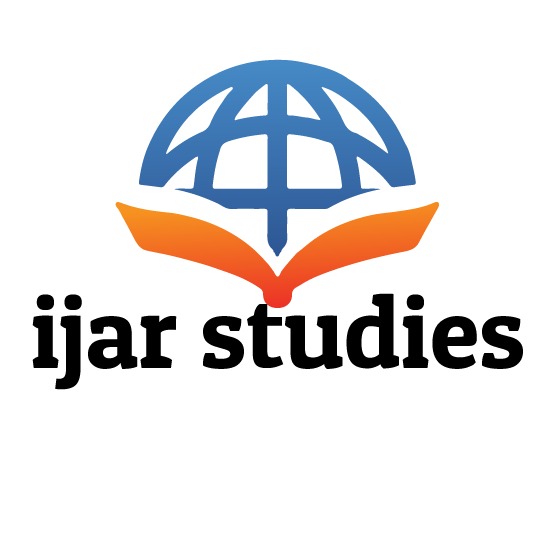تشكّل القيم مكانة بارزة في ثقافة المجتمع، وهي الضابط لسلوك الأمم والشعوب، وتُعدُّ عنصرا أساسيا من العناصر التي يقوم عليها المنهج، وترتبط ارتباطا وثيقا بالمجال التربويّ؛ لما لها من علاقة وثيقة بشخصية الفرد. وتبرز أهمية القيم والمنهاج في ما يحتويه من عناصر تُشكّل فكر المتعلّم وثقافته، وتتحمّل المؤسسات التربويّة ومنها الجامعات مسؤولية كبيرة في ترسيخ النظام القيمي لدى الطلبة. وللغة أثر كبير في التكوين الفكريّ والاجتماعيّ للطالب، ومن ثم التكوين القيمي، فبقدر النموّ اللغّوي يكون النّموّ الفكري، وبقدر النموّ الفكريّ يكون النموّ القيميّ. ولأنّ اللغة وعاء الثقافة وأداة التعبير عنها، إذ تعكس اللغةُ الحياةَ الاجتماعية والثقافية وما فيها من تقاليد وقيم وأخلاق وتعاملات وفنون وغيرها، من هنا نبعت فكرة هذا البحث التي تقوم على إدماج القيم في مناهج تعليم العربية للناطقين بغيرها، وكيفية تعلّمها، وأساليب تعزيزها، عند لسان غير عربي. ويتناول البحث التعريف بالقيم، وأقسامها من معرفية ووجدانية وحركية (سلوكية)، وأهم القيم الإيجابية التي نحاول غرسها في أبنائنا المتعلمين من غير العرب كالقيم الإنسانية والدينية والقومية والبيئية وغيرها، وآلية تدريسها وتعزيزها في مناهج الناطقين بغير العربية وذكر نماذج تطبيقية على ذلك، ثم التعرف إلى أبرز التّحديات التي تواجه متعلم اللغة للقيم كاختلاف الثقافات والفكر والدين بين الأمم، وتقديم اقتراحات لتعزيز القيم الإيجابية عند هذه الفئة بالاعتماد على الأنشطة المنهجية واللامنهجية، مستندة في بحثي إلى مبادرة قمتُ بها بالتعاون مع مدرسة من مدارس وزارة التربية والتعليم استهدفت مجموعة من طلاب المستوى الثالث في مركز لغات جامعة اليرموك- وكانوا من الجنسية الماليزية- عنوانها "الأقصى كلّ السور"، لمناقشة قضية إنسانية إسلامية عربية، عززنا خلالها قيما معرفية ووجدانية وحركية عند مجموعة من الناطقين بغير العربية.
Values are prominent in culture of any society. It is the controller of the conduct of nations and people. It is an essential element of the approach and is closely linked to the educational field because of its close relationship with the personality of the individual. The importance of values and methodology appear clearly in the content of the elements constitute the thinking of the learner’s culture. The educational institutions, including universities are responsible for the consolidation of the value system among students. Language has a great influence on the intellectual and social composition of the student and the value structure. As far as linguistic development are concerned intellectual growth and intellectual growth as well as valuable growth. Because the language is a cultural tool and a tool to express, as the language reflects the social and cultural life and its traditions, values, ethics, transactions, arts and others. Hence the idea of this research, which is based on the integration of values in the curricula of teaching Arabic to non-Arabic speakers and how to teach them Arabic . The research deals with the definition of values, their sections of cognitive, emotional and behavioral. The most important positive values that we try to instill in our non-Arab learners such as human, religious ,national and environmental values, and the mechanism of teaching and promoting them in the curricula of non-Arabic speakers. Such as differences of cultures, thought and religion among the nations, and make suggestions to promote positive values in this category based on systematic and extracurricular activities, based on my research into an initiative I have undertaken in cooperation with a governmental school that targeted the third level students at the Yarmouk University Language Center. They were Malaysian nationals, called “ Al-aqsa is all inside the fence “ "الأقصى كل السور", to discuss the issue of Arab Islamic humanity, in which we enhanced the cognitive, emotional and kinetic values of a group of non-Arabic speakers.

By subscribing to E-Newsletter, you can get the latest news to your e-mail.